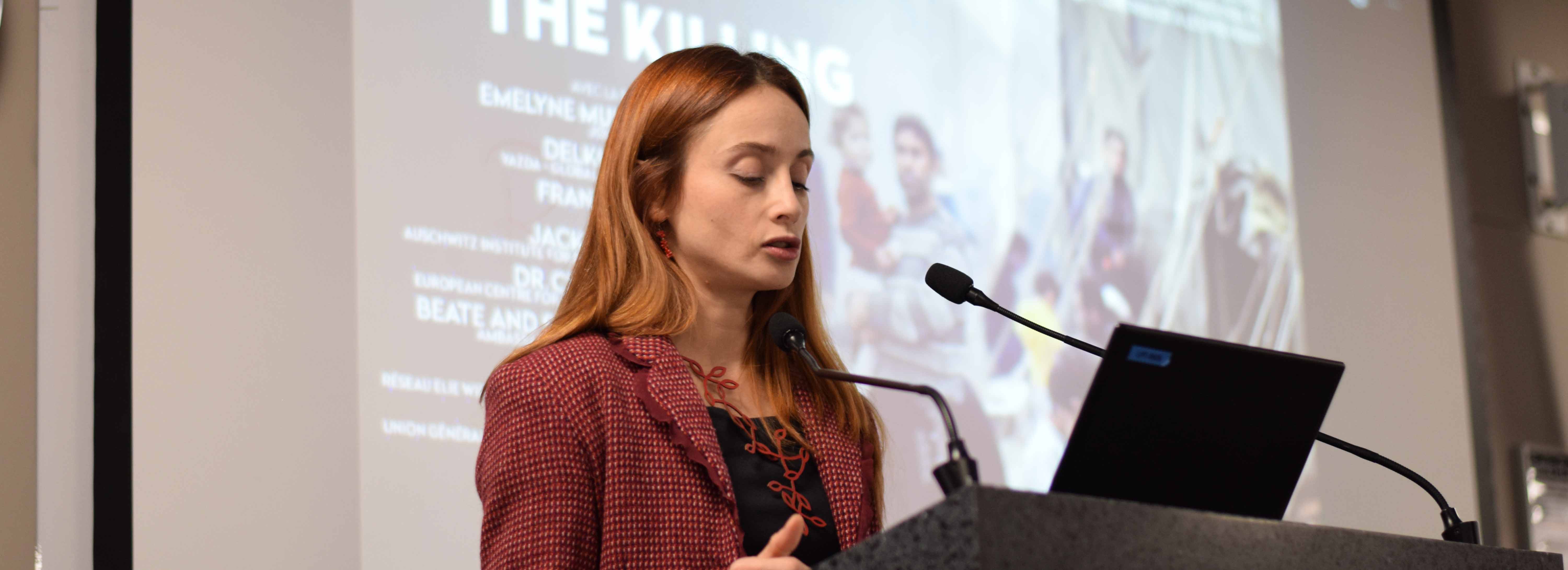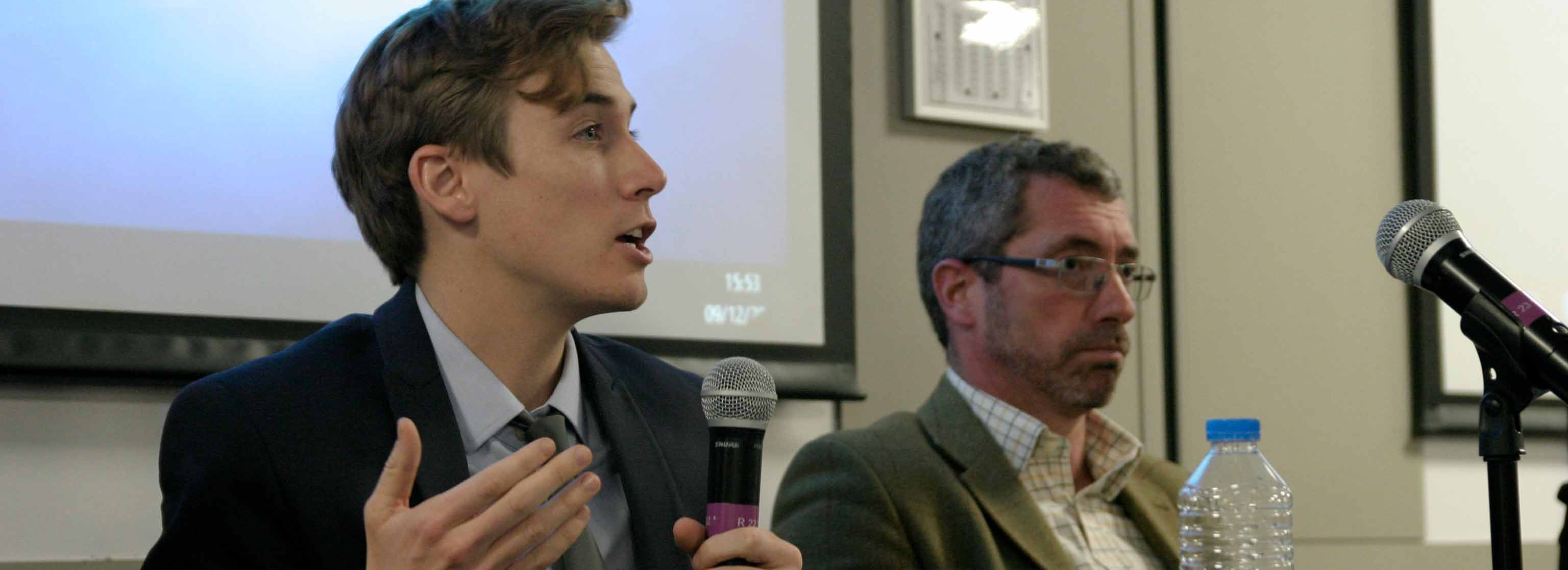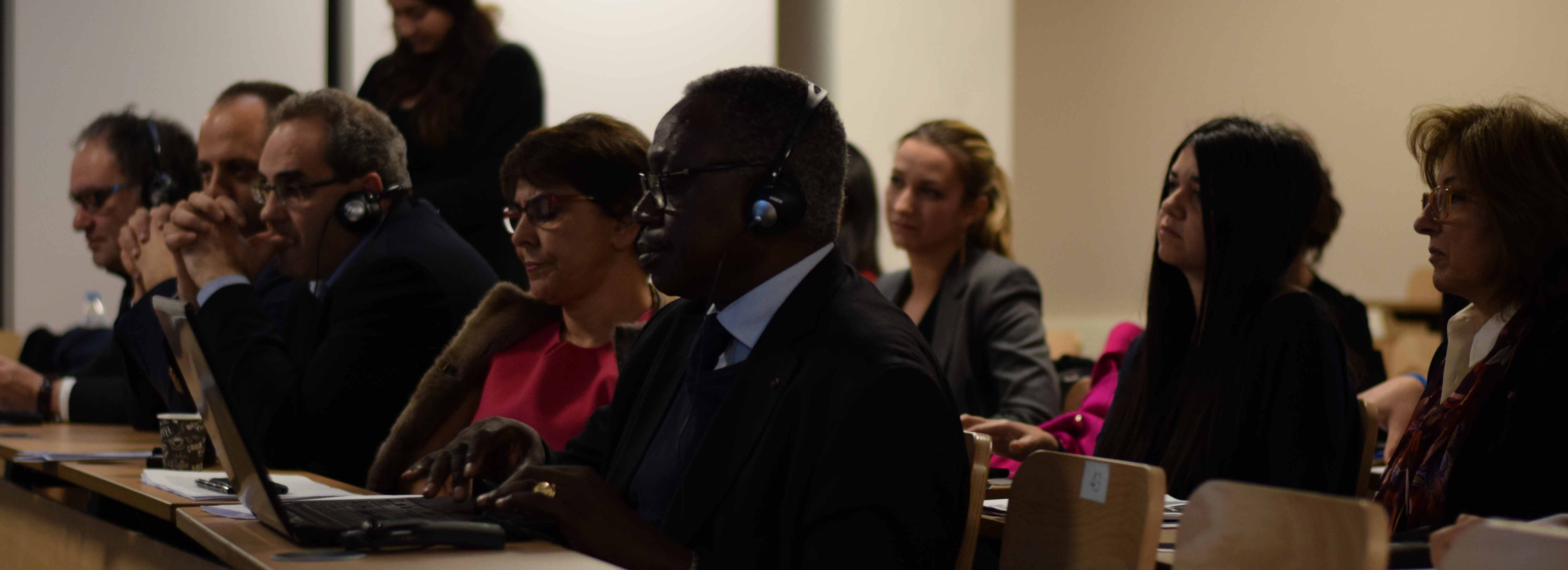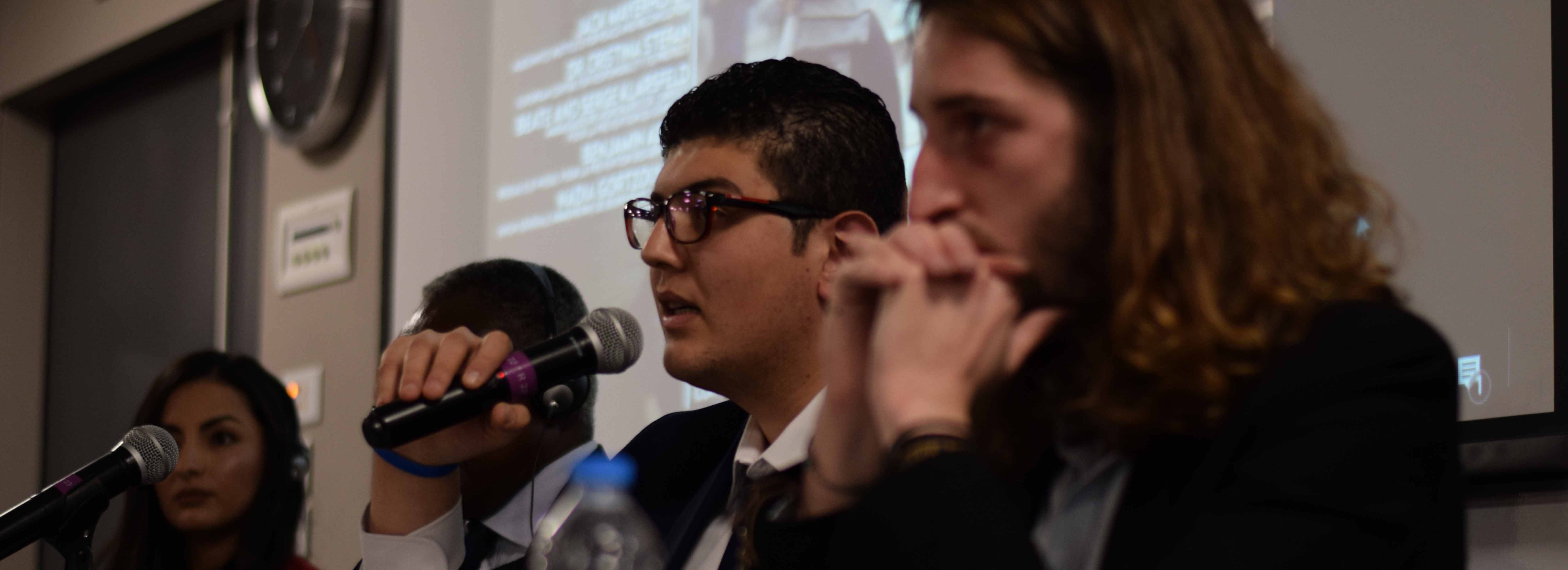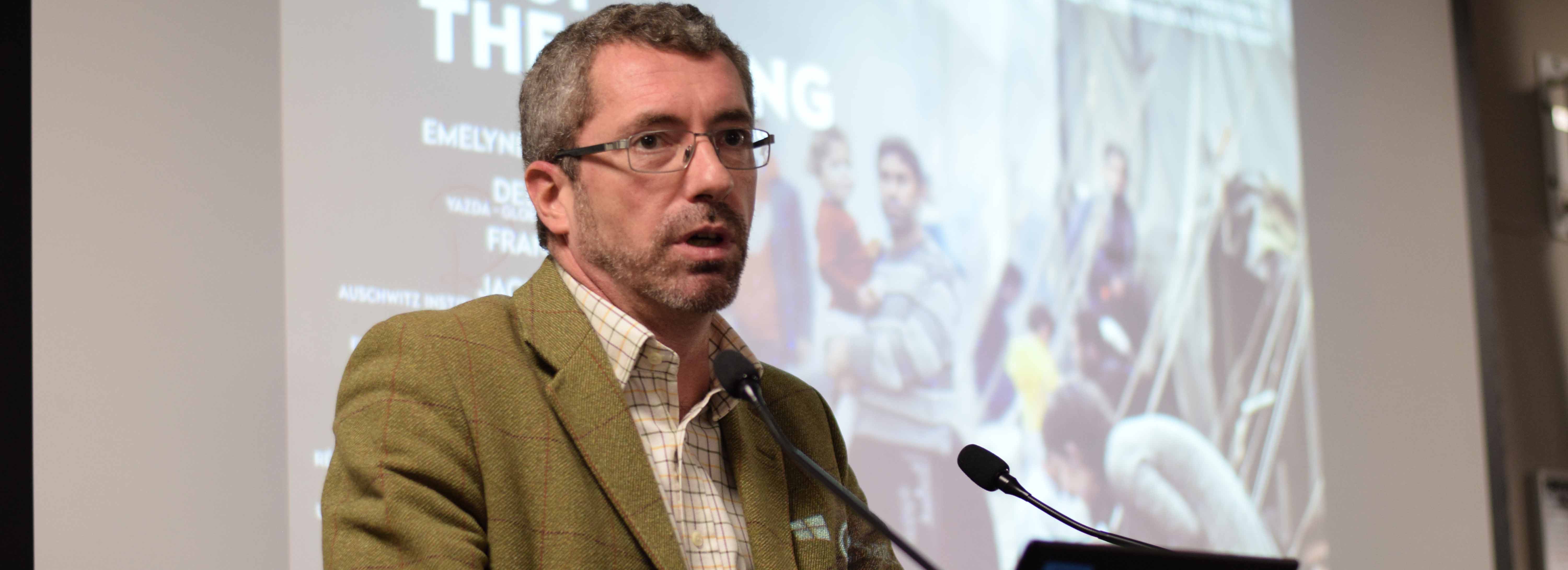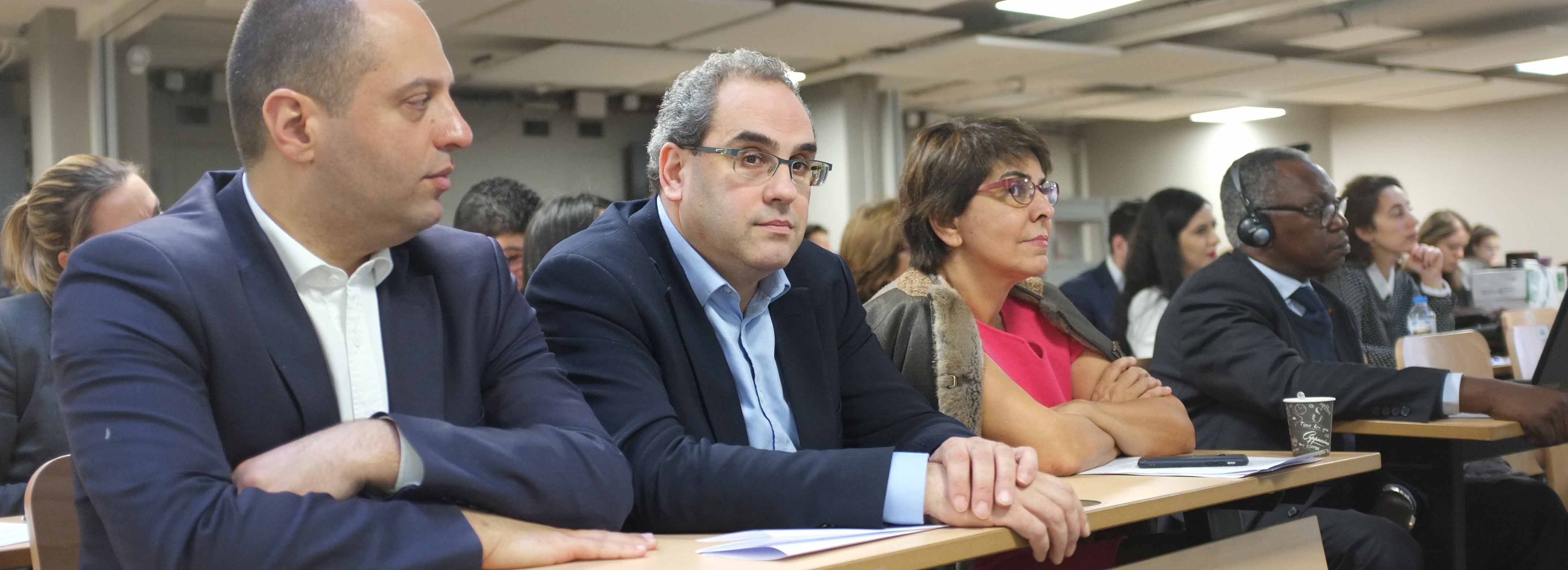18 December 2017
Genocide and mass atrocities continue to occur, leading to critical situations in several countries, including Burundi, the Central African Republic, Irak, Myanmar and Syria. On December 9, in Paris, AGBU Europe, European Grassroots Anti-Racist Network (EGAM)/ Elie Wiesel Network and Nouvelles d’Arménie held a conference titled How to Stop the Killing to unpack the urgency of prevention and mark the United Nations International Day for Commemoration of Genocide Victims and the anniversary of the UN Genocide Convention.
The conference brought together speakers – policymakers, international experts, witnesses and activists—to explore Europe’s actions to stop crimes against humanity and how to make the Responsibility to Protect (R2P), an emerging international law principle, more effectively integrated in EU policies. It featured Frank Engel, Member of the European Parliament and chair of the Elie Wiesel Network for the prevention of mass crimes; Dr.Cristina Stefan, director of the European Centre for the Responsibility to protect (ECR2P); Jack Mayerhofer, chief of staff at the Auschwitz Institute for Peace and Reconcilition (USA); Delkhwaz Haciy, director of the Yazidi organization Yazda Sweden; Godefroy Mokamanede, board member of the Interreligious Platform in the Republic of Central Africa; Beate Klarsfeld, a famous German activist; Nadia Gortzounian, President of the Armenian organization AGBU Europe and Benjamin Abtan, President of the European Grassroots Anti-Racist Network.
As witnesses of crimes against humanities shared their experiences, experts discussed internal prevention, the need to support failing states and timely interventions to stop atrocities. The speakers also highlighted the continuing, century-long controversy around the legitimacy and effectiveness of external interventions to protect the victims of atrocities and post-conflict reconciliation.
Dr. Stefan opened the conference by explaining the key role that the EU has played in promoting the concept of R2P internationally, a new principle of international law which sets the responsibility of all governments to protect civilian populations, though they have often failed to deliver on the promise of R2P. Jack Mayerhofer focused on the practice of establishing task forces responsible for the prevention of atrocities in Latin America and the role of his organization in it. In Ecuador, for instance, the AIPR has provided training to help prevent the repetition of past government-sponsored atrocities. In Ecuador, prevention thus includes memorialization of past crimes, education, care and compensation to the victims as well as training and an early warning mechanism, all of which experts consider necessary to avoid the repetition of atrocities. “Genocide is a process, it requires planning and organization. The good thing about that is that planning can be interrupted. The earlier you start, the more effective you can be,” he said.
Frank Engel MEP concluded the first panel with an emphasis on Syria, Libya and Yemen, where it is too late for prevention. “We have to get the boots on the ground”, he said. He also added that some of the most effective interventions are not discussed much, referring to the example of an Australian-led coalition of regional states which intervened in the Solomon Islands, stopped the civil conflict and reconstructed the government.
Speakers of the second panel, who witnessed recent crimes committed in the Central African Republic, Iraq and Syria, presented their experiences. Delkwaz Haciy, director or Yazda Sweden, is a young Yazidi woman originally from Iraq. She shared a harrowing account of the Sinjar massacre by the Islamic State. “Although it has been over three years since the attack on Sinjar, thousands of Yazidis remain in IS captivity, but the Iraqi authorities and the international community have failed to take meaningful action to assist or rescue them,” she said. Godefroy Mokamanédé explained how the conflict evolved in the Central African Republic, clarifying that religion is not so much the cause of the conflict, but more of a pretext, and pointed at the weakness of the state, unable to protect its citizens, as the main problem.
Beate Klarsfeld, an icon of the fight against impunity in France, who travelled to Burundi to mobilize against the victimization of a minority, highlighted the crucial importance of individual activism, along with capacity-building, in the fight against those responsible for atrocities.
Nadia Gortzounian, speaking last touched upon the situation in the Republic of Artsakh (Nagorno-Karabakh), where war crimes were committed, but no international human rights organization has investigated or monitored the situation. “If our states do not wish to know about, or denounce the crimes that are occurring, what hope is there that they might help prevent them in the future?”.
To watch segments of the conference, please visit: http://bit.ly/2BDSlCh

